Aladdin: What's a Street Rat Worth?
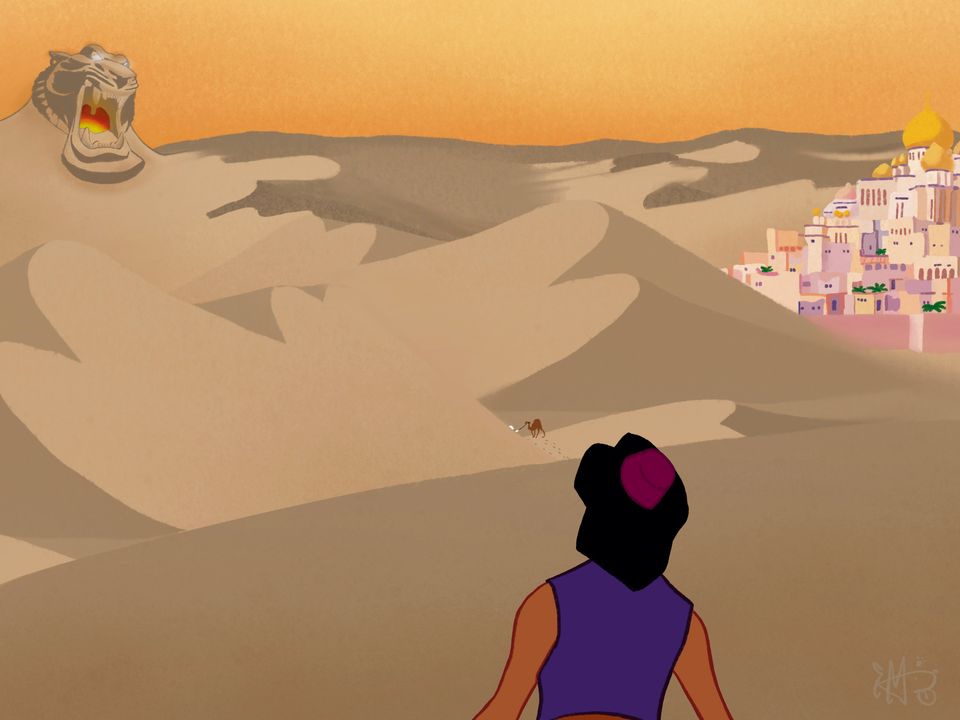
Art: © Jessica Keiko Mitsumasu
Human worth and the diamond in the rough
“I’m not worthless.” This is what we want to know. Whether in the frenzied life we lead to justify our existence or in the quiet moments of contemplation, it all comes down to this. Our lives must mean something. But how can I know?
Aladdin is a story of a young man wrestling with what makes his life worthwhile. On the streets and without family, he is an outcast. Whether it is the palace guard labelling him a street rat or the contemptuous prince kicking him into the mud among jeering spectators, Aladdin is repeatedly branded worthless. Many of us have felt similar. We never met our parents' expectations. Our peers dismissed us. Yet, we hold on to the hope that worth is not just a matter of our accomplishments.
The tale is relevant for us today because Aladdin’s journey reflects the dominant narrative we encounter in our world. After his humiliation in the streets, Aladdin returns to his shabby home and gazes longingly at the palace. If he could only get there, to be in a world with riches and servants, he would be happy. He would know that he has made it. This too is how we live. We think of our value in terms of our status and our possessions. Even if we tell ourselves that materialism and consumerism will not ultimately deliver, we still find ourselves preoccupied with the latest gadgets or work promotions. It's a part of our culture, as it was his, and every culture in the history of the world, in one way or another.
It is perhaps a concern that is even heightened in a time of exceptional individualism. Our personal achievements carry the onus of providing us with meaning because we no longer turn to our communities to understand our worth. We are engineers and teachers before we are siblings and friends. Despite our inherent social nature, our relational contexts are thinning. The encouraging words of loved ones that instill a sense of purpose in our lives are now often less meaningful than our self-evaluations derived from personal accomplishments in the marketplace.
There is some inevitability to this tendency. We are still captivated by these narratives of human worth because they provide a clear trajectory. Aladdin tells himself that if he can only be in the palace, he will have made it. We want meaning and worth to be easily defined, something that can be foolproof, and so we turn to tangible measurements and means. I can always flaunt my fancy car to those who doubted my worth in the past, but what if worth resides in my character? Such subtlety wins no social approval. For Aladdin, the history of marginalization and poverty makes such ostensible signs of human worth all the more compelling. How many stars or top executives achieved their place precisely because they needed to prove themselves to the world? The cards appear stacked against Aladdin.
But the narrative is still immature. Even as Aladdin stares at the palace, Brad Kane’s fine voice tells us there is "so much more" to our hero. Despite his hunger, he offers his food to destitute children. And after Jafar's initial failed entry into the Cave of Wonders, the identity of the diamond in the rough is revealed to be Aladdin. He may be seeking his worth in riches for the time being, but we anticipate the story is going elsewhere.
In his book The Second Mountain, the New York Times writer David Brooks refers to two approaches to life. The first mountain represents the journey for many of us as we try to build our meaning in life alone and make a name for ourselves. The second mountain represents a journey many of us take only after our disillusionment with the former. This journey is built not on achievements but on deeper commitments to relationships and moral life. Aladdin starts his story on the first mountain, but he does not finish there.
Much of the story’s tension arises from competing arbiters of worth. The world denigrates Aladdin, and yet this Cave of Wonders speaks of him with approval. This mirrors reality. When we try to find our worth, we always come across conflicting sources. On one hand, our culture encourages us to find our worth from within and to disregard what others say. But this is a fanciful dream because we are by nature social creatures. Our relationships shape our self-understanding. Even if we take pride in our accomplishments, we inevitably define them in a social context. It is not simply that we have careers but that we have them while others do not, that our careers are held in high esteem in our culture, and that this grants them their worth.
Yet even then, the world appears fickle and never seems to bestow the honour we hope for. One day our bosses love us, but the next we are expendable. They never know the whole picture, nor can we say with any certainty that their measuring stick is the right one. It appears that we are caught in a conundrum. Our internal apparatus for worth is inadequate, but our social spheres also fail us. The perspective in Aladdin, then, is that the ultimate stamp of approval is divine. The Cave of Wonders sees what nobody else can see, and it declares his worth. That source does not look at appearances but looks at the heart. We have a re-definition of what grounds our human worth. Only after this divine declaration can we begin to then see what this worth entails without neverending needs for justifying what is worthy. There’s something objective about what is good.
This begins to shine through with Aladdin’s commitment to others. When Jasmine first enters the marketplace and is in distress, he is quick to help her. Even briefly after meeting Genie, despite the tremendous temptation to do otherwise (a temptation he must overcome again later in the story), Aladdin promises to use one of his wishes to set his blue friend free. He asks Genie what the latter would wish for, a question that simply stuns the powerful being because it has never been asked before. Aladdin immediately goes to what's important to others. He is not like the former masters. He does not ultimately seek power or treasure. If it wasn't for Abu, he would've walked out of that cave without a scratch. Providence has placed this lamp in his hands precisely because he is not like others. He is, we might say, worthy of the lamp.
Of course, Aladdin is still fallible. Even as we see these fine points of his character, we see his aspirations still point toward the palace, and if not there then toward love that can be had through sustained appearances of being a prince. He repeatedly lies to Jasmine because he still struggles with the tension between a commitment to himself versus others. When he lies, Aladdin places his own desire to woo Jasmine over a relationship founded on trust. This preoccupation even extends to telling Genie that he cannot keep his promise. The old doubt returns. What if they find out that I'm not really a prince? Will I lose what I am striving for? Will I be worthless?
The vacillation is human, and we are all too familiar with it. We fear that we cannot get off the train because the destination is so close. On some days, we are completely embroiled in the quest for self-aggrandizement with the hope that it will make us finally feel important. Our work dominates us, and we devote our everything to moving toward that next promotion. We save and save to make the big purchase. But the cost is high. We are spiritually restless and ever in doubt. Even our relationships are warped, as others become means to our own ends of feeling good about ourselves.
But Aladdin’s story does not end there. A true crisis arises, and that is where his values are truly sharpened and revealed. For just like family emergencies and unexpected hardship shake us from our singular vision of the first mountain, Jafar’s rise to power forces Aladdin to consider what really matters. He does not shy away from opposing this tyrant. He risks his life to save Jasmine. The contrast is stark. Not only is Jafar on the first mountain, but he is also completely enslaved by his desires. He seeks increasing power until he literally becomes bound by it. Perhaps the folly of these worldly metrics becomes clear to Aladdin as he watches Jafar pulled into his prison.
Finally, at the critical moment in the story when Aladdin must make a decision about what to do with his last wish, to become a prince so that he can be with Jasmine or to lay down his own desires for the sake of Genie’s freedom, he chooses the latter. He knows that pretending to be a prince, to continue living in that framework is to ultimately live untruthfully. It is not that this is simply a better or worse choice. The difference between the first and second mountain is not one of preference. What Aladdin comes to see, and what we must learn to see, is that a life built on commitments and serving others is a life that is fuller, indeed better than a life lived for the self. A life of worth is not one of accolades but of integrity and relational depth.
Aladdin’s commitment to Genie comes to mean more than his commitment to himself. Still, in his ragged garments, Aladdin echoes the narrator’s voice at the beginning of the tale. “It is not what is outside, but what is inside that counts.” He is the diamond in the rough.
More Disney Reflections in Common Culture
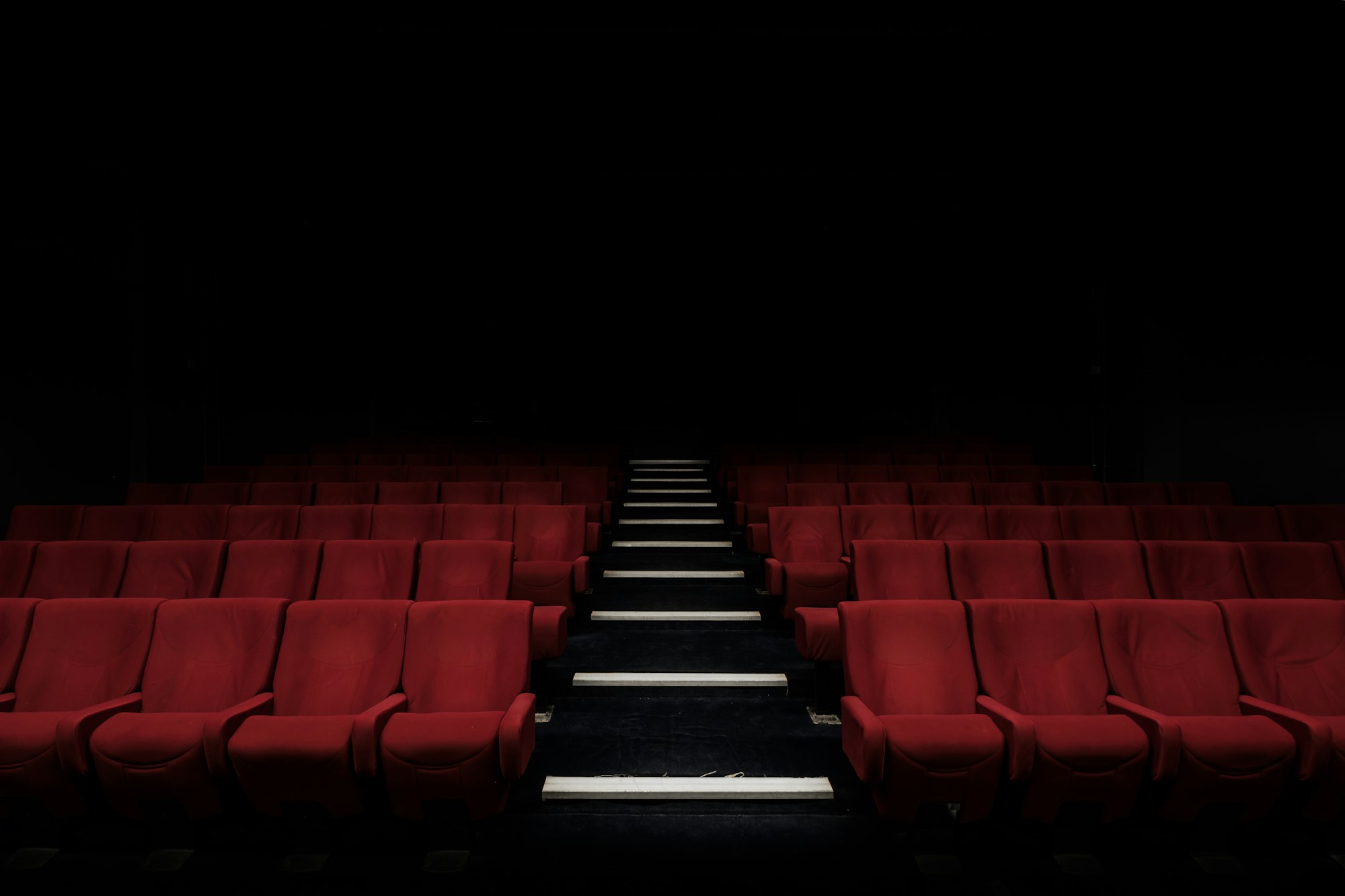

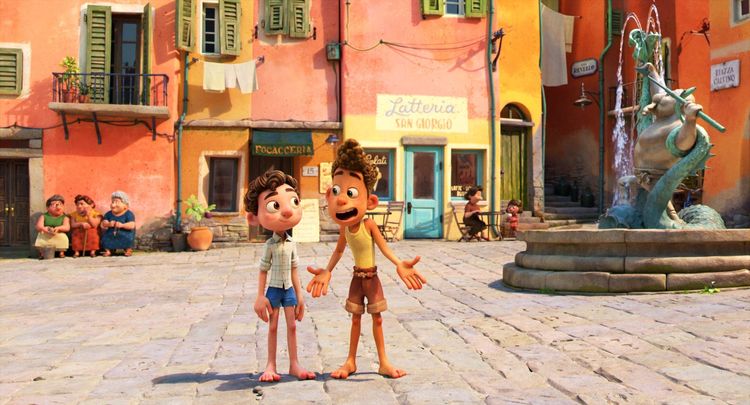
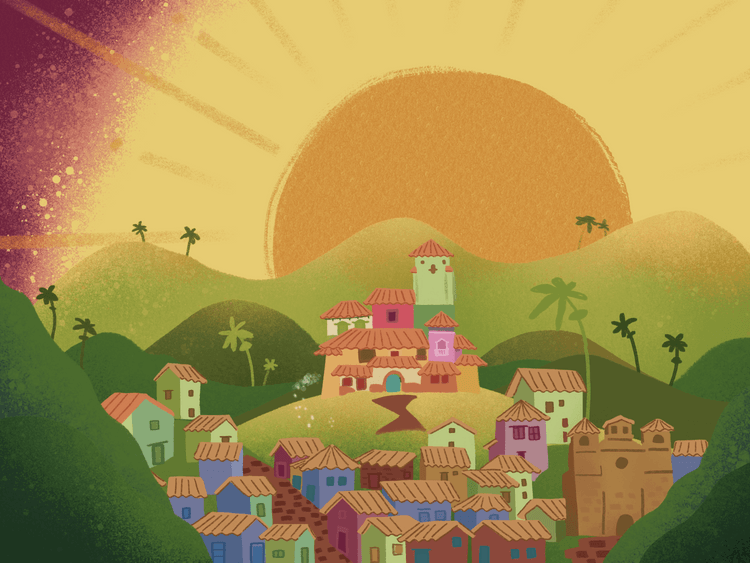
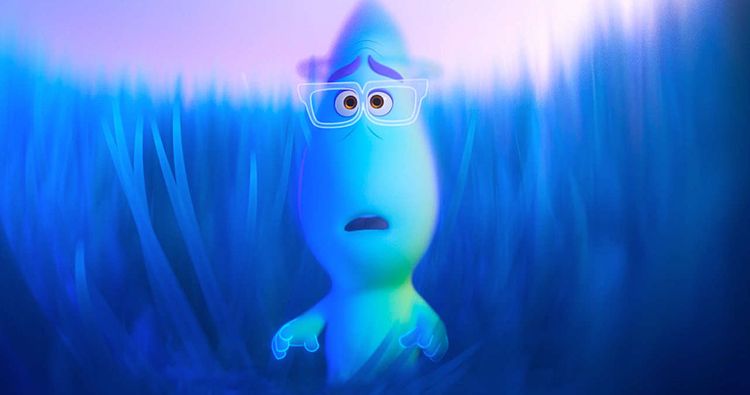

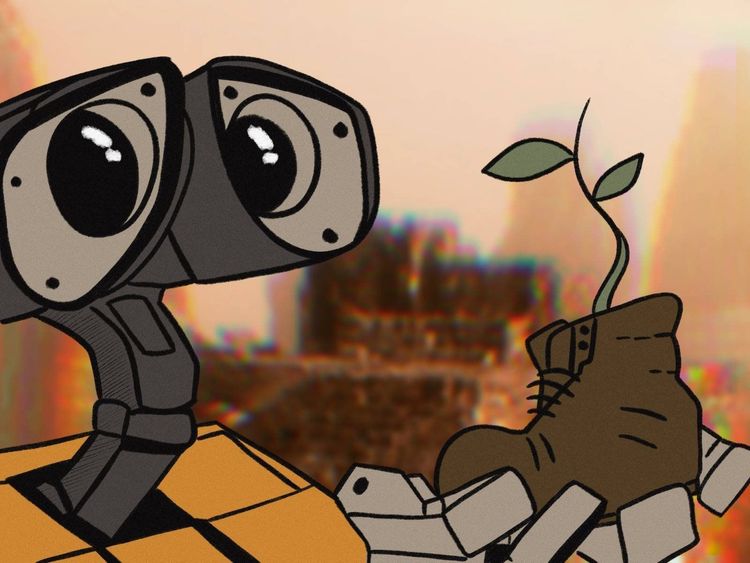
Member discussion